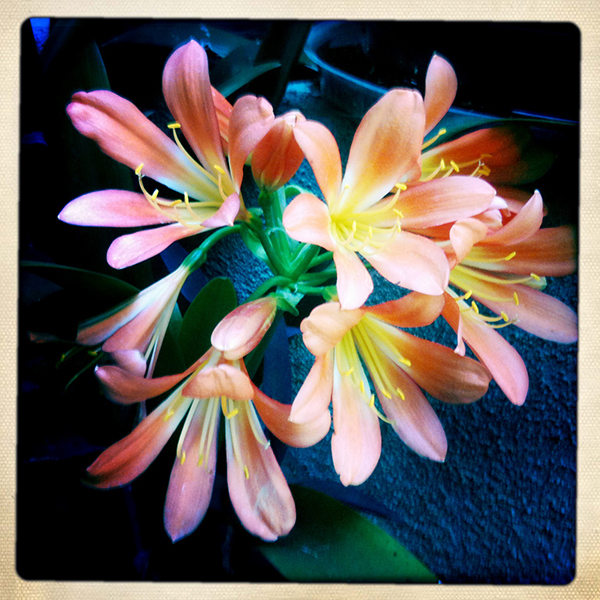
As part of my ongoing Do Better Challenge, I am seeking out people who are doing volunteer work and good deeds to help out in the various secular communities. We see a lot of negativity in the world and because of that, every now and then, I like to try to focus your attention on some of the good people out there doing great things.
Miri Mogilevsky and Courtney Caldwell are two very inspirational women who are doing something that I think is wonderful to help fill a partial void in the secular community. They have created a support group on Facebook for people with mental illness but without faith. Their ongoing project is called, “Help Without Heaven.”
I interviewed both Miri and Courtney to find out more about the purpose of the group and to get the scoop on why exactly they did this and to find out how YOU can get involved. 
1. Do you identify as skeptic, atheist, humanist or something else? How long have you been actively participating in the secular community?
MM: I identify mostly just as an atheist. It’s the simplest way to describe what my view on the existence of god is. “Skeptic” is a label I dislike for many reasons even though I try to apply those principles to my thinking. People who identify as “skeptics” often, in my experience, expect that identification to serve as some sort of proof of their intellectual superiority. As they always said in my writing classes: show, don’t tell. I’ve been involved in the movement for about a year and a half. In July 2012, I went on a whim to the Secular Student Alliance conference in Columbus because I’d heard about it through some school friends and was visiting family nearby at the time. I barely knew anyone there, but I met so many people within the next few months that I ended up sticking around and getting really involved.
CC: I’m not terribly particular about what I’m labelled as – I find atheist, humanist, or non-theist are all equally applicable. To me, the facets of my identity like “feminist” and “vegan” are much more a driving factor of my worldview than my lack of a belief in a deity. I share Miri’s distaste for the label “skeptic,” while also agreeing that the principles of skepticism are still important. I’ve been actively involved with the atheist community for nearly two years now, and how I label myself has evolved a bit over that time. While it hasn’t always been easy, and I’m a different person than when I started out, I’m very grateful for the friendships I’ve made.
2. You have recently started a “Help Without Heaven” Facebook group. Please tell us a little bit about that group and what or who it is set up to help.
MM: It’s a support group for nontheists struggling with mental health issues. That includes diagnosed illnesses like major depression or substance abuse, and also non-clinical issues that can still be useful to get support for, like shyness, stress, and so on. We started the group a few weeks ago and it already has over a hundred members who have shared a wide variety of struggles, successes, and advice for others.
3. Did your experience with activism in the secular community inspire you to start this group or was something more personal the catalyst?
MM: It was both, for me. I’ve suffered from depression for over a decade; it’s varied in severity but has always been a constant in my life. I’ve also known what it’s like to have nobody to talk to about what I’m dealing with, and also to accidentally push away friends who aren’t prepared to hear about it. A support group where everybody is there to help each other in a reciprocal way, and where we have procedures to prevent people from being triggered by others’ posts, seemed like a better way to deal with it. It’s hard to feel like a burden to others when you’re constantly helping and supporting them, too. On the other side of it, I’m also a social work student who’s hoping to become a therapist after I get my degree. I’ve worked and volunteered in the mental healthcare field a lot, and I hoped that my experience would be useful for organizing and moderating a group like this. So far, it definitely has been.
My activism in the secular community opened my eyes to issues I have so far been privileged not to have to experience, such as being unable to access mental healthcare that isn’t based on religion or pseudoscience, or having friends and family who try to use religion to explain your struggles and exhort you to just pray to god. The specific idea for this group actually grew out of two panels we had during the first FtBCon last summer, one about supporting friends with mental illness and another about the intersections between religion, pseudoscience, and mental health. Once I saw how many of my fellow activists had to deal with religion and woo in their attempts to get help and support, I realized that an explicitly secular support group, where we can guarantee that they won’t have to deal with it, could be really helpful. And, finally, I have too often seen mental health issues dismissed within the secular movement–for instance, when mental illness is used in a stigmatizing way to insult religious believers, and when people who feel traumatized by the ridiculous amount of hate directed at feminist atheists are told to suck it up and get over it. While our group is only for those who are dealing with mental health issues directly, hopefully its existence and popularity will serve as a wake-up call to those who have the privilege of never having to worry about their mental health.
CC: The secular community is actually the reason I was able to finally go to the doctor and get diagnosed with a mental illness. Mental illness was highly-stigmatized for me growing up, and I was taught that it was a result of sin in your life, so I never had a healthy view of mental illness until I started reading bloggers like Jen McCreight and Greta Christina. I had no idea that so many people suffered like I did, because when your community tells you that depression (or other mental illnesses) is your fault, obviously less people talk about how they suffer. Reading what Greta, Jen, and others had to say on the matter really helped me understand that I wasn’t alone and there was actually a community of people who would understand what I was going through.
Because of how influential the secular community was for me and my own mental health, I thought this group would be a really great way for me to give back a little bit and maybe help some people who are in the same place I was a few years ago.
4. Has the project been positive so far? How are you gauging the success?
MM: Yes, I would say so. Given how quickly we got members (despite our strict vetting process) and how positive their responses to the group have been, I would say it’s successful so far. Also, many of the people who joined because of relatively mild issues have told me privately that it’s been really eye-opening for them to see others talk about much more serious issues. It made me realize that my experiences as someone training to be a mental health professional are extremely unique; most people don’t get to hear others being so open and honest about mental illness. While this sort of education wasn’t really my aim in creating the group, it’s been a positive side-effect.
CC: I think the group has been hugely successful so far. People are posting their struggles daily, and getting so much positive feedback and support. These are really sensitive subjects and emotions tend to run high in these kinds of discussions, which can lead to blow-ups. We haven’t had any of that at all. Miri mentioned that our vetting process is super strict, and it is, because we want this to be an incredibly safe environment for people. I think that vetting process is part of why we’ve seen such a peaceful participation amongst group members. But I think that dynamic really speaks to our members as well. We have such a wonderful and caring group of people, so the success of the group says a lot about how awesome they are.
5. If someone wanted to get involved either helping or participating as a member in your group how would they do that?
MM: As I mentioned, unfortunately, we do have to use a vetting process. I wish this weren’t necessary, but given both the sensitive nature of the discussions in the group and the fact that there are individuals in the atheist movement whose singular objective seems to be to shut up and shut down those who are working for change, this was one of the first considerations we had to make. Currently, the only way to get into the group is to have a current member of the group vouch for you, or to check if you have any mutual friends on Facebook with one of the group’s admins (such as Courtney and me) and ask them to vouch for you. If you check the group on Facebook, you should be able to see if that’s possible for you.
CC: Like Miri said we’re super-aware of the fact that the very nature of the group means we have to keep it safe and somewhat locked down. However, we’re also working on some more public resources that we hope will benefit the community as a whole. Hopefully in the future we will be able to post some online resources through Google Hangouts and stuff like that. We have some ideas floating around, so stay tuned :)
6. What advice would you give to people who want to make a positive impact in their particular communities?
MM: I know the usual advice is Just Get Off Your Ass And Do It! and Don’t Be Afraid!, I’m going to temper that with this: get the thoughts and feedback of others. Motivation and persistence are really important, but first you need to assess if there’s a need out there for what you’d like to do, what concerns or worries people have about your idea, who’s willing to help, and so on. Before I started Help Without Heaven, I solicited feedback from lots of people about whether they would use a group like this, what they wanted it to look like, what their fears were about it, and ideas they might have to alleviate those fears. I also wrote the group’s guidelines collaboratively with several other people.
So, remember to consider others’ perspectives. And then Just get Off Your Ass And Do It! and Don’t Be Afraid! Yes, you might not succeed and you might not end up making a difference. But you definitely won’t succeed or make a difference if you don’t do anything at all.
CC: I would also add that if you think you aren’t making a difference, it’s entirely possible that isn’t actually true. I was a secular community “wallflower” so to speak for a long time, and rarely spoke up when someone impacted me in a positive way. Just remember that for every one person who tells you that you’ve made a difference, there are probably more that aren’t speaking up yet. Keep persevering and definitely don’t hesitate to seek out help from people who’ve done similar work to what you’re doing. Advice from my more seasoned friends in the community has been invaluable – from everything on how to handle harassment, to how to promote various projects. And the upside is that you often get some pretty great friends out of the deal, too!
Thank you so much, Miri and Courtney for taking the time to talk with us and thank you for helping the community. It is groups like this that remind us all that if we work together we can find the hope and the strength we need to build a better future.
*If you or someone you know is working on a positive outreach or secular community charity project or volunteer work and you would like to be considered for a feature on our blog, please let us know in the comments or through the contact link at the top of the page. Thanks!

All flower photos used in this post © Amy Davis Roth











Nice post, Amy! It’s good to see people making a positive difference in the world!